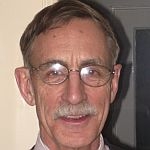 (HOST) On a recent trip to Argentina, commentator Bill Mares found himself discussing terror, torture and coming to terms with the past.
(HOST) On a recent trip to Argentina, commentator Bill Mares found himself discussing terror, torture and coming to terms with the past.
(MARES) As Senator Patrick Leahy leads the charge to investigate the use of torture, also known as "harsh interrogation tactics," in the fight against terrorism, a former Vermonter has just released a film about kidnapping, torture and murder in Argentina in the late 1970’s and early 1980’s. Peter Sanders grew up in Argentina and Texas, the son of an Argentine musicologist mother and an Academy Award-winning film-maker father. He attended UVM and graduated in 1992.
His film is called The Disappeared. It documents one heartrending practice during the so-called "dirty war" between 1976 and 1983, when Argentina was ruled by a military junta. After a left-wing terrorist campaign of assassination of government officials and military leaders, a group of generals and admirals overthrew the civilian government and kidnapped, tortured and murdered as many as 30,000 labor leaders, political activists and university students. Many simply "disappeared" into unmarked graves, or more gruesomely, were drugged and thrown out of military planes into the South Atlantic.
While living in Buenos Aires, Sanders became interested in what had happened to the children of some of the "disappeared" students. He focused on Horacio Pietragalla, a young man in his twenties who was raised by the maid of a police official. Sanders documents how Horacio became suspicious about his true parentage and eventually – through DNA evidence – learned that his birth parents had been arrested and murdered shortly after he was born, and that the police official who took him had probably been one of the torturers.
With a deft camera and smooth one-on-one style, Sanders wove together historical footage of the urban uprising and the torture chambers, as well as interviews with the maid, Horacio’s surviving families, journalists, and a group of mothers who launched a public protest about their lost children. He even questioned some unrepentant military and police officers.
When I was in Argentina in April, I talked to a woman who had been a university student in Buenos Aires during this period. As soon as I asked her about the "dirty war," the words poured out of her.
"We didn’t know, but we should have! We were so isolated in those days. We went to Catholic schools, not to the public university. We worked in the slums doing good work, we thought. Politics was for someone else. We believed the government papers when they said the biggest threats were from the urban guerillas. We only saw the dead bodies of government officials who’d been killed. It wasn’t until friends came from Europe and said the newspapers there were full stories about the disappeared – that we began to doubt."
I told her about Senator Leahy’s truth commission proposal and the opposition to it from both left and right.
"Maybe you should put some of those officials on trial!" she said.
I replied that I thought Leahy would be delighted just to get the Truth Commission approved.
She thought for a moment. "Well," she said, "it’s important for a country to do some soul-searching after events like this. You’ll just have to decide best how to proceed."